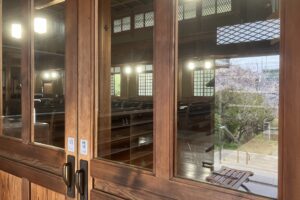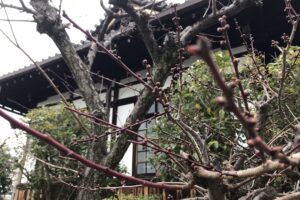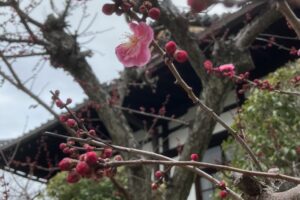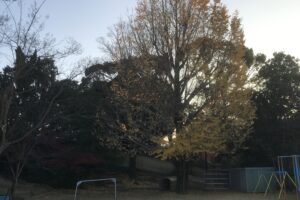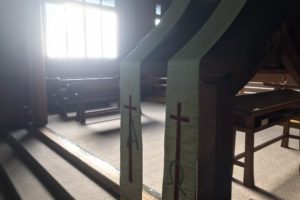The 17th Sunday after Pentecost (Proper 22 ), Year C, October 2, 2022
Luke 17:5-10
Rev. Misa Furumoto
Today, we are talking about faith. Have you ever thought what faith means? When our children were small, they would say to me after bedtime prayer, “Mom, I don’t know if I believe in God. I can’t understand what it means to believe in God.” Then, I replied, “Well, then, tell God honestly that you can’t believe in Him. And ask Him, ‘Please help me so that I can believe in you.’” … I myself don’t know how many times I have prayed God in my life saying, “Please give me faith. Please strengthen my faith.”
Even the disciples, who were always with Jesus, asked Him, “Increase our faith!” We can see why they said that by looking at the verses immediately preceding today’s passage. This morning’s reading begins in Luke 17 verse 5, but if we look just before it, we find the following words of Jesus: “If another disciple sins, you must rebuke the offender, and if there is repentance, you must forgive. And if the same person sins against you seven times a day, and turns back to you seven times and says, ‘I repent,’ you must forgive.
When the disciples heard this, they must have thought, “No way, that’s impossible!” Think about it. Can you actually forgive a person who sins against you seven times a day just because he/she says “I’m sorry” every time? I would probably get sick from the stress. But the disciples thought “Maybe we just lack faith. If only we had greater faith, we may be able to forgive not just seven times, but even fifty or seventy times a day.
Then what did Jesus do? Did he raise his hands high and say, “All right, I will increase your faith?” No. He replied in a way the disciples had never expected. He said, “If you had faith the size of a mustard seed, you could say to this mulberry tree to get out and put down its roots in the sea.
The mulberry tree has deep and wide roots in the ground in order to obtain sufficient moisture in an arid land like Palestine. There is no way to pull it out from the ground. Besides, of course, it is a land plant, so it is impossible for it to put down roots and grow in the sea. It is doubly impossible. But Jesus teaches that “faith as small as a mustard seed” makes even this double impossibility possible.
So, what does this mean? Does it mean that faith, even if it is so tiny that we cannot see it, is enough? Or was Jesus saying that the disciples did not have even the tiniest bit of faith? Maybe not. Maybe, what Jesus was trying to say is that faith is not a matter of size but the quality. It is about the quality of faith, the content. I think there is a hint of what that is in the story that follows.
It is a short parable of Jesus. It is from a time when slavery was the norm. If you were the master and you had a servant, he would start preparing dinner as soon as he comes home from working in the fields. No way would he be the first to eat. He would naturally eat after you had finished eating. And yet, he would not be specially thanked by you for doing so because he was just doing what was natural. Here says Jesus, “You are the same. When you have done all that you were ordered to do, say, ‘We are worthless slaves. We have done only what we ought to have done!’”
In the original language, “We have done only what we ought to have done” means “We have only repaid what I owed”. We easily grumble when others do not show appreciation for what we have done. But before we do that, we must know how much we have received from God. When we do good to others, we are repaying the great blessings God has given us. More to the point, it is actually just repaying a debt.
This is the faith we should have. It is knowing that the good we do for others is nothing more than a mustard seed compared to the great blessings God has given us.
No matter how hard we try to serve others, serve the church, and serve our families, no matter how we praise ourselves for doing good thing for a community, it is only a fraction compared to God’s tremendous amount of love. Even if we boast ourselves for doing things that please God, we are only repaying what we owe to God.
To live as a Christian is to live humble. And to serve the Lord with that humility of heart is faith. And this faith makes possible what seems impossible in this world. It can make a mulberry tree break out of the soil and put down roots in the sea. With it we can truly forgive a person who sins against you seven times a day.
The disciples were getting a wrong idea about faith. And maybe we are, too. We always say, “Dear God, increase our faith.” I don’t think we are wrong in this wish. But it may not be right to think in a way that if we have great faith, miracles will happen, wishes will come true, or we will be able to do things that we can’t usually do. That is no longer faith, but more like magic. We do not have faith for miracles. Miracles happen when we are grateful for the great love and grace that God has given us, and when we are willing to repay it with a sincere sense of humility, even if it is as small as a mustard seed. After all, the mustard seed we have has tremendous potential. Jesus says in another place, “when a man takes and throws into his own garden, it will grow and becomes a tree, and the birds of the air will be nested in its branches.”
In the name of the Father, of the Son and of the Holy Spirit, Amen.

